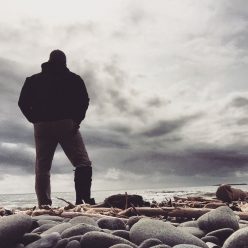“Triggering Passages”
“Alaska alone has some 700 used military defense toxic sites, which tell a story of the Cold War and every war since. The levels of radioactive and persistent organic pollutants remaining in the environment impact people who are dependent upon the land for their subsistence way of life. Then, there are the impacts of economic colonialism and underdevelopment to consider” (LaDuke 147).
“Ranchers have long associated cattle with money. The dairy cows might as well exude the jingle of coins with their milk, while the freeloading beef cattle (or “beeves,” for short) become moneymakers only after slaughter” (Newman 91).
News Media Context:
“Groups sue EPA to protect wild salmon from climate change”
U.S. fishing and conservation groups sued the Environmental Protection Agency on Thursday, seeking to protect wild salmon threatened by rising water temperatures attributed in part to climate change in two major rivers of the Pacific Northwest. mobile.reuters.com/article/idUSL1N1G90ID
Discussion
Winona LaDuke points out a troubling issue among the use of toxic waster and where we decided to store it. The issue of pollutants remaining for decades within ecosystems is an ongoing problem affecting salmon populations, among other species. As I explore my issue of Salmon commodification, there is a real threat of water quality degradation, which will create an inhospitable environment for salmon, thus our ecosystem loosing its key stone species on which it builds its foundation.
Salmon like the cattle are seen as dollar signs to most non-native fishermen. As we see in Wionna’s book salmon can be a great economic resource, but above all the spiritual connection to salmon outweighs economic gains. What if we could come to view all wild and domestic life as more than dollar and cents? I believe that’s when we would no longer need commodity markets for life, because their value would be worth more than a single transaction.
As our climate changes, our rivers grow warm and the cool temperatures salmon need for survival cannot be found. Our earth is warming precisely because of the toxic materials, commodification of animals, and wide use of fossil fuels. All three of these books are connected by the idea that life is not a commodity. The salmon’s habitat is just as precious as the humans; in fact the two are on in the same. If we want to see the salmon, and people save actions like these are methods to create change.
Works Citied
LaDuke, Winona. Chronicles: Stories From the Front LinesiIn the Battle for Environmental Justice. Ponsford, Spotted Horse Press. 2016. Print
Newman, Kara. The Secret Financial Life of Food: From Commodities Markets to Super Markets. New York: Columbia University Press, 2013. Print
Zuckerman, Laura. “Groups sue EPA to protect wild salmon from climate change”. Reuters. February 24 2017: Page (1). mobile.reuters.com. Web. February 25 2017.
